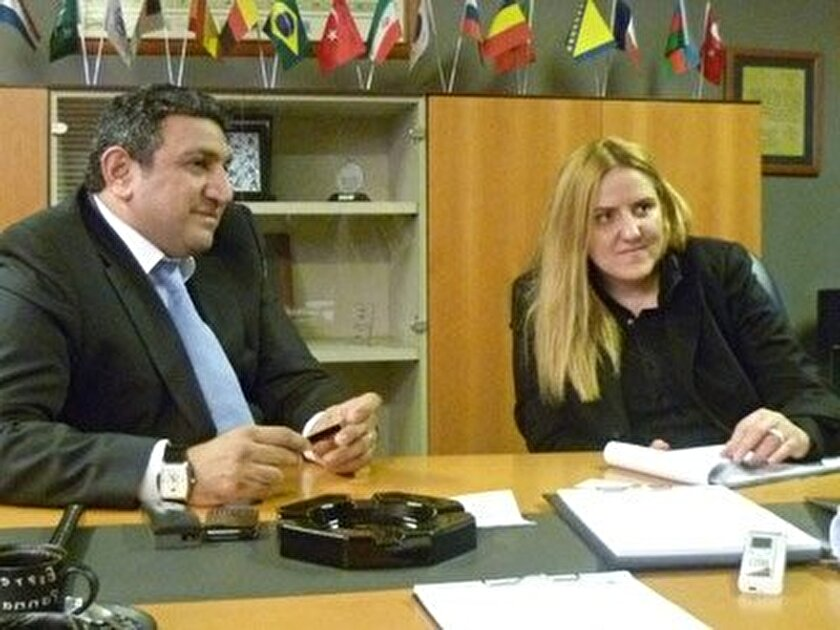Yurtgaz, which was one of the largest Liquid Propane Gas (LPG) distributors in Turkey, requested a ruling for two of its companies to avoid bankruptcy, leading to criminal charges against one of Turkey’s prominent power couples.
Ankara/Dubai (11 October – 30). The story of Yurtgaz and the rise and fall of the Bayegans, one of Turkey’s high profile power couples, reads like a fairy tale turned scandal. Rüya Bayegan, the 51-year-old graduate of Newbury College in Boston, initially joined the textile business of her father and later struck out on her own joining Bayegan in 2002.
The Bayegan Group, formed in 1945, is one of the oldest actors in the petrochemical industry in Turkey. Public records speak of a solid family business and reads like a page out of Forbes magazine with 24 offices worldwide and 200 employees, which in real terms is a small-medium size player. According to Refining & Petrochemicals, Rüya Bayegan oversaw the expansion of the family business by creating a global distribution network and logistics capability. Although headquartered in Turkey, the Bayegans partnered with companies like Chevron, Ineos, Tasnee, Evonik to name a few.
But that stellar rise is overshadowed by current Turkish civil and criminal investigations against Rüya Bayegan and Ercüment Bayegan.

Records filed by Turkey’s Criminal Enforcement Court show the couple is accused of tax evasion, forgeries of documents, company names and addresses as well as unpaid million-dollar debts.
Records in the Criminal Enforcement courts in Turkey, in Ankara, Hayat, Istanbul, and Konya, show that Rüya Bayegan and her husband, Ercüment, are charged with fraud cases. The lawsuits filed against them consist of a combination of charges stemming from the efforts to evade legal judgment by changing their company titles and evade creditors by colluding to defraud.
Informed insiders claim that for some time the couple Rüya Bayegan and Ercüment Bayegan left for Dubai to avoid questioning, testimony and potential prosecution. Investigators suspect Rüya Bayegan, a Turkish national allegedly holding a Serbian passport, of frustrating efforts by the Turkish police. It is not known now whether they have begun cooperating with authorities.
The Turkish lawsuit was the result of claims against subsidiaries of Yeniyurt Petrol Terminal AŞ and its Liquid Propane Gas (LPG) facility in Hatay Erzin, which triggered the criminal investigation against the couple. Their temporary relocation to Dubai was timely. According to corruption experts, Dubai is increasingly the capital of illicit money flows. Awash with ‘kleptocrat money’ as one expert called it, the city state hosts organized crime figures, Russian oligarchs escaping sanctions, and criminals wanted by Interpol.
The legal changes in Europe, which include greater collaboration between EU authorities, legislation against corruption, and the newly adopted European Whistleblowing Directive (EU WBD), once applied in Turkey, will result in more members of the public coming forward with information about crime, corruption and collusion.
Factoring fraud
Rüya and Ercüment Bayegan have attracted the attention of Turkish financial crime officials for the impact their bad behaviour has had on the Turkish oil and gas sector, and particularly its small players. For example, borrowing secured against service contracts is a common business practice for small businesses, but they must rely on their larger partners, like the companies owned by Rüya and Ercüment Bayegan, paying on time. If they do not, the money they are owed can reduce their operating profit cutting close to zero. A default by Bayegan is disastrous for the small business owners who do not get bank support.
Yurtgaz was one of these companies struggling to avoid bankruptcy and repay its creditors. The purchase of the Yeniyurt Petrol Terminal by the Bayegans was supposed to help resolve the company’s financial troubles. Instead, the Bayegans’ failure to pay has turned into a nightmare for the company and its creditors.
Yurtgaz’s creditors allege the Bayegan companies changed company names and business locations to avoid making the agreed payments. Suspicion grew and lawsuits were filed against four individuals and companies including Ercüment Cafer Bayegan, the owner of Bayegan Petrol, who was accused of not paying hundreds of millions of Turkish Liras.
One of the creditors from Yurtgaz claimed “the defendants colluded, smuggled goods” and evaded taxes. Ercüment Bayegan and the other defendants could face up to 3 years in prison and financial restitution if convicted.
The lawsuit also named Ömer Gümüş and Byport Petrol Ürünleri Terminal Hizmetleri A.
The dispute centers on an outstanding debt by Yeniyurt Petrol Terminal AS in Hatay of an estimated 47.5 million US dollars as part of the agreed sale of the LPG facility to the Bayegans. The sale was originally negotiated by Mutlu Gül, the former General Manager of Turkish Petroleum. Court documents in Hatay and Istanbul show that Bayegans did not pay for the facility they bought on behalf of Byport Petrol Ürünleri Terminal Hizmetleri AŞ. That failure to pay triggered a crisis for Yurtgaz that they blame on the Bayegan businesses.
Another lawsuit named İrfan Güzel, a creditor of Yeniyurt Petrol. The lawsuit filed by Güzel claimed the defendants colluded jointly aiming to injure the creditors. According to the case file, the debtor company gave a 15 million Lira promissory note to Güzel.
A day after the deed was issued, the giant plant was transferred to the Bayegan’s company, driving Yurtgaz maliciously and intentionally into insolvency. Without payment from the Bayegans, the note could not be paid.
Another creditor filed a lawsuit against Ercüment Bayegan’s company, Byport Petrol Ürünleri Terminal Hizmetleri AŞ. In this lawsuit the plaintiff, Menduh Yürekli, appeared as a creditor of 11,2 million Lira against Bayegan. Documents suggest the company of Bayegan has no receivables, hence it defaults to the lender.
With the legal troubles looming over the Bayegan name, investing in the company is a high-risk gamble despite its large market share, with 10 percent of polymer distribution in Turkey and 20 percent in solvents.
Experts suggest the unwritten legal consequences of the scandal for the high-powered couple impact the livelihood of about 500 gas stations and a loss of 1,500 jobs across Turkey.
Big plans, big loss, or malicious fraud?
The division of labor within the couple seems to have been set out by the Bayegans. An interview with Rüya reads, “Her husband Ercüment Bayegan sets the vision and goals, and Rüya Bayegan has to run to reach those goals.”
In 2019 the world of Rüya and Ercüment Bayegan was different. In an interview from that time, Rüya Bayegan outlined her big plans, which included partnering with a foreign investor to establish a refinery in the South of Turkey.
Rüya Bayegan wined and dined with the elite of the petrochemical industry. In the book titled ‘Leaders of the Middle East’ she bragged about her industry contacts and influence.
Rüya Bayegan said, “With me in this book is Yogesh Mehta, Chairman of Petrochem, Ahmed Al Arbeed, CEO of Dana as, Arnaud Breuillac, Vice President of Total, Abdullah Saeed Al Suwaidi, NDCCEO, Mark Carne, Shell Regional Chairman, and Abdulaziz Al Judami, Director of Saudi Aramco. I am known by the 7 most influential names.”, she was quoted. Insiders close to the Bayegans said, “Modesty seems not necessarily a personal quality”.
Without doubt Rüya and Ercüment Bayegan did not count on the change of fortunes in Turkey. Tension with the United States, Turkey’s strategic interest to be an oil bridge to Russia, the Middle East, and the war in Europe have consequences for Turkey and particularly Greece, which faces Turkish saber rattling over the control of the Mediterranean Sea.
Sensing an opportunity, this Yurtgaz scandal likely is impacting Rüya and Ercüment Bayegan’s dynasty, with the bubble bursting at the expense of employees, contractors, and families in one of the biggest scandals of the Erdoğan administration.















